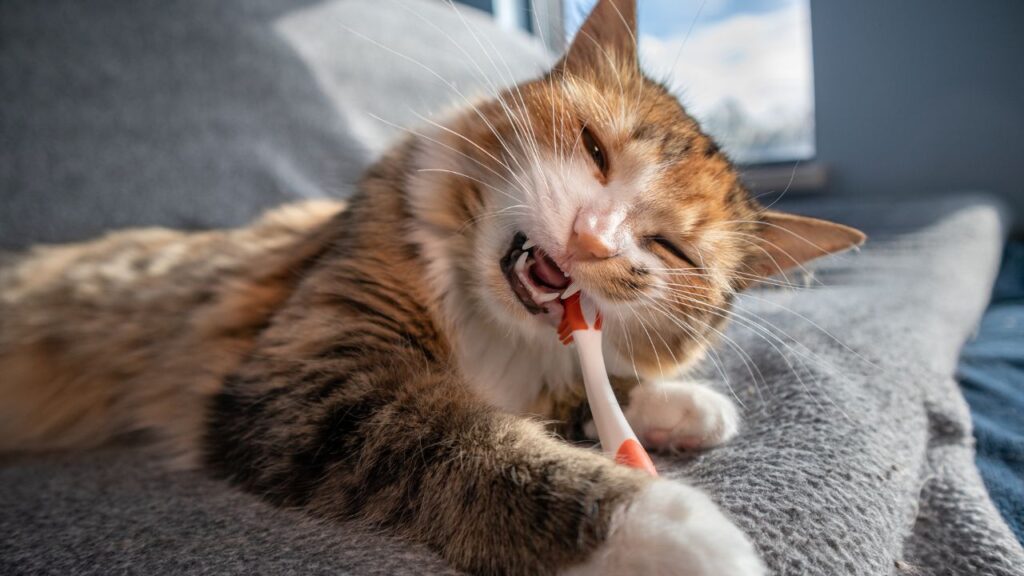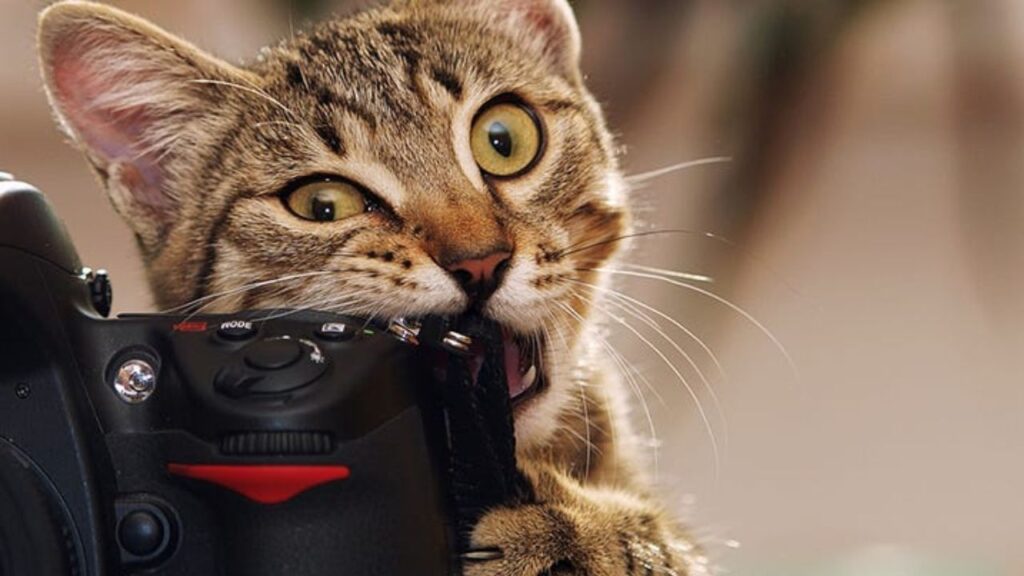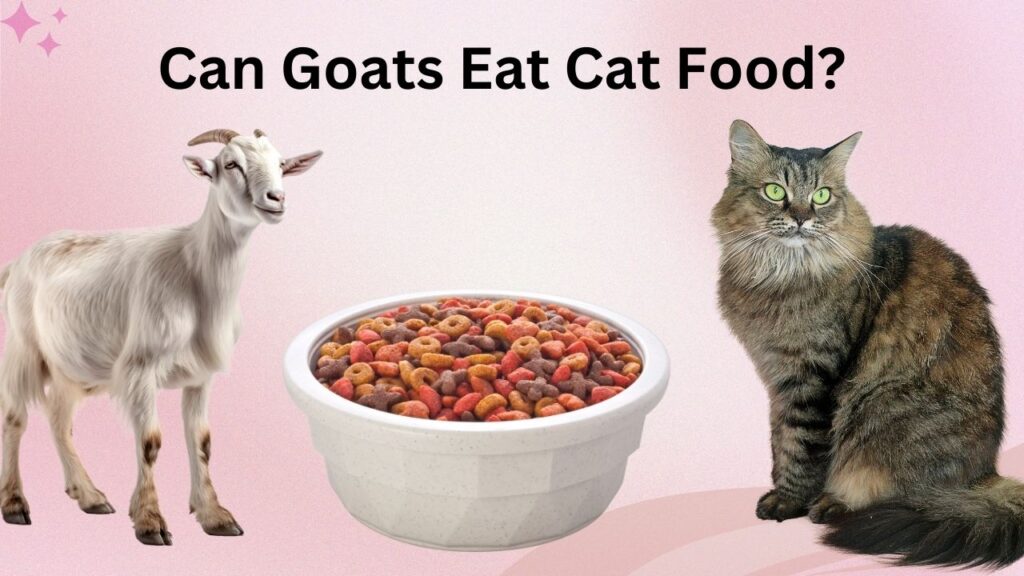Have you ever caught your cat gnawing on a plastic wrapper or playing with a crinkly plastic bag and wondered, “Why does my cat chew on plastic?” You’re not alone. This curious behavior is more common than you might think, and it can be both perplexing and concerning for cat owners. Let’s dive deep into the feline mind to uncover the reasons behind this quirky habit and explore ways to keep your kitty safe and happy.
Contents
Common Reasons Cats Chew on Plastic
Cats are known for their playful and sometimes puzzling behaviors. Chewing on plastic can stem from various factors, each shedding light on your cat’s unique needs and instincts.
1. Pica: An Unusual Eating Disorder
Pica is a condition where animals (and humans) crave and consume non-food items. For cats, this can include plastic, paper, and even fabric. If your cat is frequently chewing on plastic, it might be a sign of pica, which can be triggered by:
- Nutritional Deficiencies: Lack of certain minerals or vitamins.
- Boredom or Stress: Seeking stimulation or comfort.
- Medical Issues: Conditions like anemia or hyperthyroidism.
2. Teething and Oral Health
Kittens, much like human babies, go through a teething phase where they need to chew to relieve gum discomfort. Chewing on plastic can be a way for them to soothe their gums. Even adult cats might chew on plastic if they have dental issues or oral pain.

3. Exploration and Curiosity
Cats explore the world primarily through their mouths. The texture and sound of plastic can be intriguing and satisfying for them. This behavior is part of their natural curiosity and desire to investigate their environment.
4. Attention-Seeking Behavior
Sometimes, cats engage in odd behaviors like chewing on plastic to get your attention. If they notice that chewing leads to a reaction from you, whether positive or negative, they might repeat the behavior to interact with you.
5. Mimicking Hunting Instincts
The crinkly sound of plastic can mimic the noise of prey, triggering a cat’s hunting instincts. This makes plastic items like wrappers and bags irresistible targets for play and chewing.
Behavioral Causes Behind Plastic Chewing
Understanding the behavioral aspects can help address the root cause of why your cat is chewing on plastic.
Environmental Enrichment
Cats need mental and physical stimulation. A lack of enrichment can lead to destructive behaviors like plastic chewing. Providing toys, scratching posts, and interactive playtime can reduce the urge to chew on inappropriate items.
Stress and Anxiety
Changes in the household, such as moving, new pets, or even rearranged furniture, can cause stress in cats. Chewing on plastic might be a coping mechanism to deal with anxiety.
Boredom
A bored cat is a mischievous cat. Ensuring your feline has plenty of activities and mental challenges can prevent boredom-induced chewing.
Health Risks Associated with Chewing Plastic
While plastic chewing might seem harmless, it can pose significant health risks to your cat.
Digestive Blockages
Ingesting plastic can lead to blockages in the digestive system, which may require surgical intervention. Symptoms include vomiting, lethargy, and loss of appetite.
Choking Hazards
Small pieces of plastic can become lodged in your cat’s throat, leading to choking or respiratory issues.
Toxicity
Some plastics contain harmful chemicals that can be toxic if ingested, potentially causing poisoning or other health complications.
Dental Damage
Chewing on hard plastic can damage your cat’s teeth, leading to dental pain and infections.

How to Stop Your Cat from Chewing Plastic
Addressing plastic chewing involves a combination of environmental management, behavioral modification, and ensuring your cat’s health needs are met.
Remove Temptations
- Secure Storage: Keep plastic items out of your cat’s reach. Use closed containers for storing plastic bags and wrappers.
- Dispose Properly: Ensure trash cans are cat-proof to prevent access to plastic waste.
Provide Alternatives
- Chew Toys: Offer safe chew toys designed for cats to satisfy their need to gnaw.
- Interactive Play: Engage your cat with toys that mimic prey, such as feather wands or laser pointers.
Enhance Environmental Enrichment
- Puzzle Feeders: These stimulate your cat’s mind and provide a rewarding challenge.
- Climbing Structures: Cats love to climb and observe their surroundings from above, reducing stress and boredom.
Address Nutritional Needs
- Balanced Diet: Ensure your cat is receiving all necessary nutrients. Consult your vet if you suspect dietary deficiencies.
- Supplements: In some cases, supplements may be recommended to address specific nutritional gaps.
Consult a Veterinarian
If plastic chewing persists, it’s essential to seek professional advice. A vet can rule out medical conditions and provide guidance on managing the behavior.
Alternatives to Plastic Chewing for Your Cat
Redirecting your cat’s chewing behavior towards safer alternatives can protect their health and keep your plastic belongings intact.
Dental Chews and Treats
Specially designed dental chews can help maintain your cat’s oral health while satisfying their chewing instincts.
Natural Chewing Materials
- Rubber Toys: Durable and safe for persistent chewers.
- Catnip-Infused Toys: These can entice your cat to play and chew on designated items instead of plastic.
Interactive Feeding Toys
These toys make mealtime engaging, providing mental stimulation and reducing the likelihood of plastic chewing out of boredom.
Frequently Asked Questions (FAQs)
1. Is plastic chewing dangerous for cats?
Yes, chewing on plastic can lead to digestive blockages, choking, toxicity, and dental damage. It’s crucial to address the behavior to prevent serious health issues.
2. How can I make my home less appealing for plastic chewing?
Store plastic items securely, use cat-proof trash cans, and remove any loose plastic from accessible areas. Providing ample toys and enrichment can also reduce the temptation.
3. What should I do if my cat ingests plastic?
If you suspect your cat has ingested plastic, contact your veterinarian immediately. Symptoms like vomiting, lethargy, or loss of appetite require prompt medical attention.
4. Can stress cause my cat to chew on plastic?
Absolutely. Stress and anxiety can lead to various behaviors, including plastic chewing, as a coping mechanism. Identifying and mitigating stressors can help reduce this behavior.
5. Are there specific breeds more prone to plastic chewing?
While any cat can develop this habit, certain breeds known for their playful and curious nature, like Siamese or Bengal cats, might be more inclined to chew on plastic.
Conclusion: Why does my cat chew on plastic?
Understanding why your cat chews on plastic involves delving into their behavior, health, and environment. By recognizing the underlying causes, you can take proactive steps to ensure your feline friend remains safe and content. From providing suitable alternatives and enhancing environmental enrichment to consulting with a veterinarian, addressing this habit requires a holistic approach. Remember, your cat’s quirky behaviors are a window into their needs and well-being, and with a bit of patience and care, you can help them lead a happier, healthier life.
Have you noticed your cat’s plastic chewing habit? Share your experiences and tips below!

